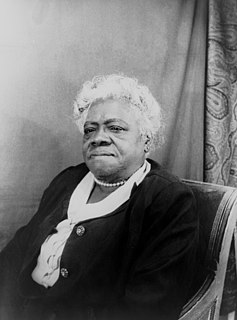A Quote by Christian Nestell Bovee
Sorrow is never more sorrowful than when it jests at its own misery.
Related Quotes
All societies are evil, sorrowful, inequitable; and so they will always be. So if you really want to help this world, what you will have to teach is how to live in it. And that no one can do who has not himself learned how to live in it in the joyful sorrow and sorrowful joy of the knowledge of life as it is.
It is abundantly evident that, however natural it may be for us to feel sorrow at the death of our relatives, that sorrow is an error and an evil, and we ought to overcome it. There is no need to sorrow for them, for they have passed into a far wider and happier life. If we sorrow for our own fancied separation from them, we are in the first place weeping over an illusion, for in truth they are not separated from us; and secondly, we are acting selfishly, because we are thinking more of our own apparent loss than of their great and real gain.
When you are sorrowful look again in your heart, and you shall see that in truth you are weeping for that which has been your delight. Some of you say, "Joy is greater than sorrow," and others say, "Nay, sorrow is the greater." But I say unto you, they are inseparable. Together they come, and when one sits alone with you at your board, remember that the other is asleep upon your bed. Verily you are suspended like scales between your sorrow and your joy.
I have known sorrow - therefore I
May laugh with you, O friend, more merrily
Than those who never sorrowed upon earth
And know not laughter's worth.
I have known laughter - therefore I
May sorrow with you far more tenderly
Than those who never guess how sad a thing
Seems merriment to one heart's suffering.
But nobody ever forgot anything, not really, though sometimes they pretended, when it suited them. Memories were permanent. Sorrowful ones remained sad even with the passing of time, yet happy ones could never be recreated - not with the same joy. Remembering bred its own peculiar sorrow. It seemed so unfair: that time should render both sadness and happiness into a source of pain.
Recently, one friend asked me, "How can I force myself to smile when I am filled with sorrow? It isn't natural." I told her she must be able to smile to her sorrow, because we are more than our sorrow. A human being is like a television set with millions of channels. If we turn the Buddha on, we are the Buddha. If we turn sorrow on then we are sorrow. If we turn a smile on, we really are the smile. We can not let just one channel dominate us. We have the seed of everything in us, and we have to seize the situation in our hand, to recover our own sovereignty.
If we choose the right, we will find happiness-in time. If we choose evil, there comes sorrow and regret-in time. Those effects are sure. Yet they are often delayed for a purpose. If the blessings were immediate, choosing the right would not build faith. And since sorrow is also sometimes greatly delayed, it takes faith to feel the need to seek forgiveness for sin early rather than after we feel its sorrowful and painful effects.


































